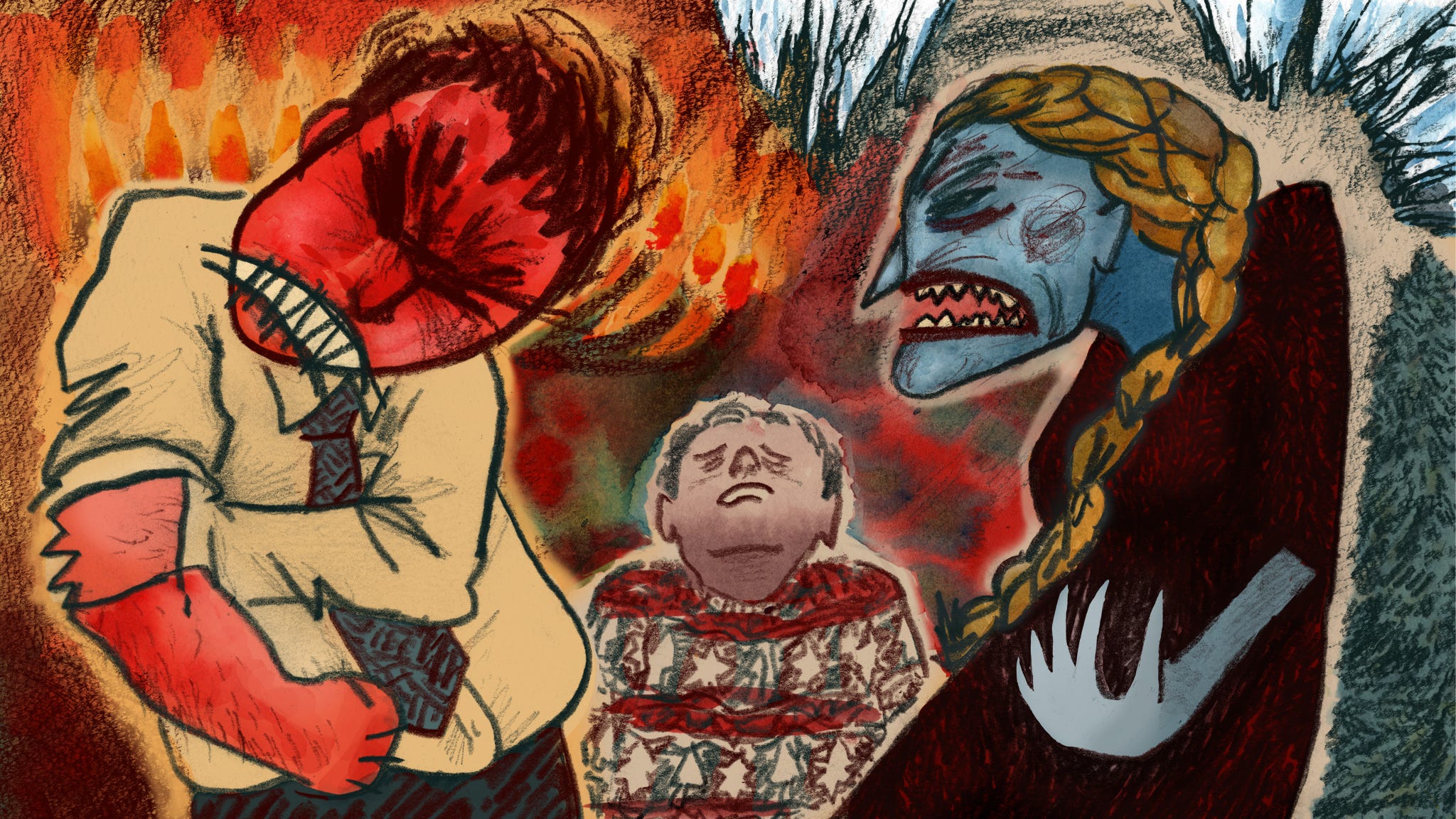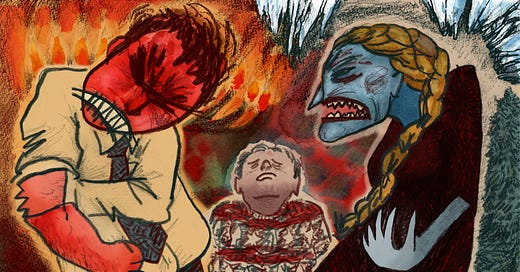That Christmas When Mom Called Dad a Miserable Jew and He Called Her a Nazi Pig
Sometimes my Polish-Jewish father and German-Catholic mother seemed like they really loved each other. But when the holidays came around, it was World War III.

Illustrations by Jess Worby
My father was born a Polish Jew; most of his extended family had been slaughtered by the Nazis. My mother was a German Catholic; her father had been in the German army. It was a union of two people clearly up for a challenge.
“Was he a Nazi?” I’d ask my mom, about my grandfather.
“He was in the army. You didn’t have a choice. You’d have to join up or they’d shoot you. Like what’s going to happen if you don’t do your homework.”
My parents’ backgrounds loomed over my childhood in 1970s Washington, D.C., generating a constant gravitational pull in opposite directions. My father’s mother, Grandma Sadie, reminded me every time I saw her that I must have a bar mitzvah when the time came, and slipped me five bucks to seal the deal. But my mother always made me give it back. “Never take bribes,” she’d say. My mother hated my pop’s favorite snack of gefilte fish, coated in gelatinous goop. My father was disgusted by the pig’s feet she would sometimes gnaw. On New Year’s…
Keep reading with a 7-day free trial
Subscribe to Narratively to keep reading this post and get 7 days of free access to the full post archives.



